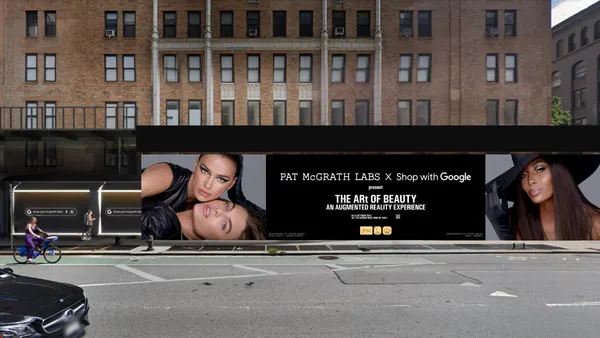Dive Brief:
-
Walmart is planning a boost to its private label baby products line, with its first premium diaper and a new 53-piece bedding line, which have launched in stores and will be available on Walmart.com next month, the retail giant said in a blog post Wednesday.
-
The "Parent’s Choice" line, which Walmart has been beefing up with new products all year, now has a refreshed logo and look, according to the post. There are 150 items that are also part of the brand reboot, according to Walmart, including sippy cups and plates, seven kinds of baby wipes, baby wash and lotions, and baby food and formula, the retailer said.
-
Also on Wednesday, Walmart said it’s working to reduce its consumables chemical footprint for Walmart and Sam’s Clubs U.S. stores by 10% by 2022, which the retailer said in a blog post will make it the first U.S. retailer to set a "time-bound reduction goal." The consumer products in the initiative include household cleaners, cosmetics and skincare items, and infant products, among others. The goal applies to chemicals defined by the Walmart Priority Chemicals List in its revised commitment, the company said.
Dive Insight:
Walmart’s work to boost its store brand baby assortment and improve its chemical footprint are two areas where Target has dominated and Amazon has also made inroads with private-label baby products available to its Prime members, though the e-commerce giant has struggled to develop a diapers line.
Walmart is the latest retailer to announce progress in restricting harmful chemicals, according to Safer Chemicals, Healthy Families’ "Mind the Store" campaign. Since January, Best Buy, Costco, CVS and Target have all announced new initiatives to address harmful chemicals in products, according to that group.
"We commend Walmart for updating its safer chemicals policy and setting new goals with a clear timeframe for suppliers to reduce the use of millions of pounds of toxic chemicals," Mind the Store campaign director Mike Schade said in a statement emailed to Retail Dive. "The company continues to show impressive leadership in leveraging its influence to transform the marketplace."
Like the new consumer product chemical strategy that Target announced early this year — a pledge to list all ingredients in all owned and national brand products by 2020; formulate beauty, baby care, personal care and household cleaning products without phthalates, propylparaben, butyl-paraben, formaldehyde, formaldehyde-donors or nonylphenol ethoxylates by the same time; and produce textiles without adding perfluorinated chemicals or flame retardants that are potential carcinogens or pose harm to guests, workers or communities by 2022 — Walmart's new policy will increase transparency around chemicals in products and drive the elimination of dangerous chemicals in household cleaning, cosmetics, and infant products, Schade said.
"This will send ripple effects throughout global supply chains," he said. "We hope Walmart's new policy will help inspire other major retailers to follow suit and mind the store."
Reducing such chemicals, especially in products used for babies and children, is emerging as a consumer priority, but maintaining performance and quality without some of those ingredients is no easy task — a conundrum highlighted by Honest Co's struggles. The consumer goods company, which promises "safe and effective products for family and home," faced complaints from consumers that its sunscreen allowed severe sunburns and from advocates that its laundry detergent contains a chemical that the company said it doesn’t contain (and that co-founder Jessica Alba has told people is a toxin to avoid).
More generally, it can be difficult for consumers to know what chemicals many products contain in the first place. Some chemicals sound bad and are pretty innocuous or even essential (heard of "oxidane?" It’s also known as "water"), while others leveraged for good (like flame retardants) cause health problems that overshadow their intended value.
Even if consumers can’t always sort all of this out, though, trends favor companies that eschew scary-sounding additives, according to experts from professional services network PwC.
"Consumers are more savvy about the fact that they can ask — they realize that they have a really strong voice," PwC Chief Purpose Officer and Corporate Responsibility Leader Shannon Schuyler told Retail Dive. "Whether it’s a company creating its own products or a company putting those products on shelves, we’re seeing a trend toward that more educated consumer. What we’re seeing in this area is more and more companies having to look at not just the products they create, but also at their supply chain."













